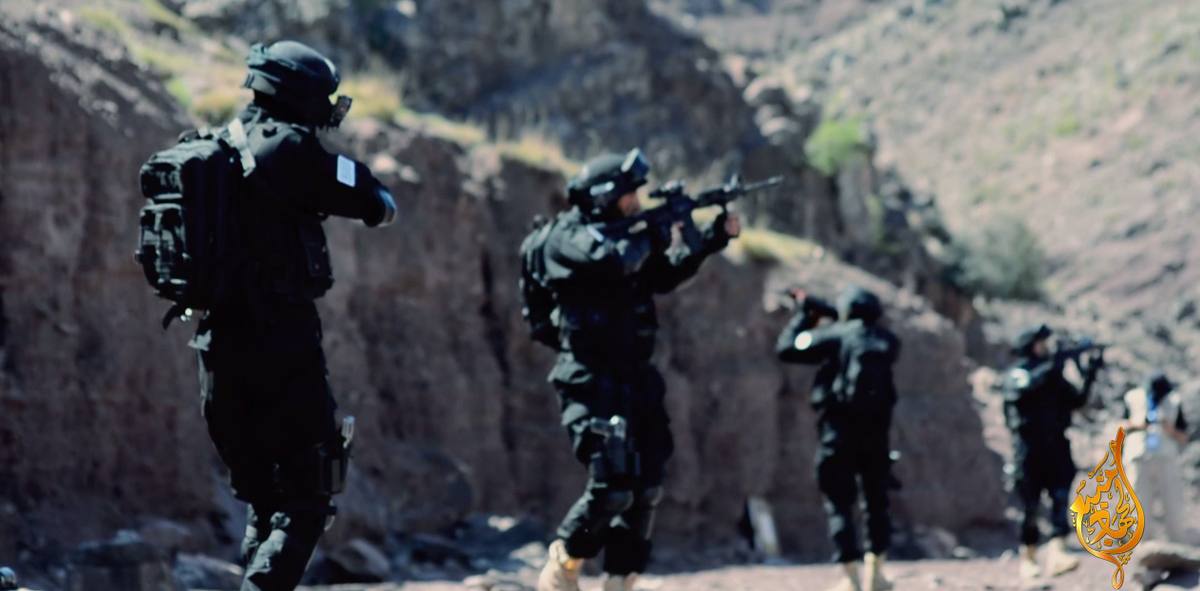On January 31, Taliban fighters attacked a joint position of the Afghan Army and the NATO around the city of Mehtarlam, the capital of the eastern Laghman province, according to the Taliban news agency Voice of Jihad.
The agency said that seven Afghan soldiers were killed and five armored vehicles of the Afghan Army were destroyed by Taliban fighters.
Taliban fighters also killed five Afghan soldiers and injured six others during a series of hit and run attacks on several checkpoints of the Afghan Army and Police in the district of Alishang in the province of Laghman.
The Voice of Jihad also reported that Taliban fighters ambushed a convoy of the Afghan Army in Shalgar district of Ghazni province, also in eastern Afghanistan, on February 1. Twelve Afghan Army soldiers were reportedly killed and nine others were injured in the attack. Taliban fighters also destroyed four armored vehicles of the Afghan Army, according to the source.
Additionally, the Taliban claimed that its fighters conducted a pre-emptive attack against several units of the Afghan Army that were about to launch a NATO-backed attack around the Band Taimore area of Maiwand district in the southern province of Kandahar on February 1.
Taliban fighters managed to kill fourteen Afghan soldiers and destroyed three armored vehicles of the Afghan Army during this pre-emptive attack. As a result, the Afghan Army units withdrew from their offensive positions around the Band Taimore area, according to the Voice of Jihad.
Such successful rapid attacks are usually conducted by the Taliban’s special forces which are known as the “Red Units”. While Afghan officials claim that these special units are receiving support from Pakistan and even Russia, in reality these units rely on US-made weapons that the Taliban capture or even buy from the Afghan Army.





What a bloody waste of life, for what ?, for US political power, another US base next to Russia / Pakistan / China etc., and of course US corporations make zillions of false money from the natural resources, oh and the Opium of course.
I don’t know about anyone else, but I am so pissed off with the continuous BS about the need a war, seemingly endless wars in all these far flung Countries.
It’s not just about another base.
The US originally invaded Afghanistan to secure the TAPI gas pipeline, for the Bechtel Corporation. TAPI would be a huge money generator for the US. Maintaining control of global energy supplies is central to the power of the US empire.
Also Afghanistan is the only real foothold of the US in Central Asia, since it lost Iran.
The US wants to control the New Silk Road, the US wants to pillage central Asia, it is desperate for the money.
The USA is not a country in the conventional sense, it’s a corporation.
I disagree enirelly with your view that it is about the Tapi gas pipeline……….
https://tribune.com.pk/story/1058949/tapi-gas-pipeline-four-countries-ink-deal-for-10-billion-project/
As for the rest of your comment, I think I stated that in my original comment.
The original project started on 15 March 1995 when an inaugural
memorandum of understanding between the governments of Turkmenistan and
Pakistan for a pipeline project was signed. This project was promoted by
Argentinian company Bridas Corporation. The U.S. company Unocal, in conjunction with the Saudi oil company Delta, promoted an alternative project without Bridas’ involvement. On 21 October 1995, these two companies signed a separate agreement with Turkmenistan’s president Saparmurat Niyazov. In August 1996, the Central Asia Gas Pipeline, Ltd. (CentGas) consortium for construction of a pipeline, led by Unocal, was formed. On 27 October 1997, CentGas was incorporated in formal signing ceremonies in Ashgabat, Turkmenistan, by several international oil companies along with the Government of Turkmenistan.[9]
Since the pipeline was to pass through Afghanistan, it was necessary to work with the Taliban. The U.S. ambassador to Pakistan, Robert Oakley, moved into CentGas in 1997. In January 1998, the Taliban, selecting CentGas over Argentinian competitor Bridas Corporation, signed an agreement that allowed the proposed project to proceed. In June 1998, Russian Gazprom relinquished its 10% stake in the project. On 7 August 1998, American embassies in Nairobi and Dar es Salaam were bombed. The United States alleged that Osama bin Laden was behind those attacks, and all pipeline negotiations halted, as the Taliban’s then leader, Mullah Omar, announced that bin Laden had the Taliban’s support. Unocal withdrew from the consortium on 8 December 1998, and soon after closed its
offices in Afghanistan and Pakistan.
After September 11 attacks some people came to believe that a possible motivation for the attacks included justifying the invasions of Afghanistan as well as geostrategic interests such as the Trans-Afghanistan Pipeline project.
https://en.wikipedia.org/wiki/Turkmenistan%E2%80%93Afghanistan%E2%80%93Pakistan%E2%80%93India_Pipeline
All wars are about money.
Let them slaughter eachother